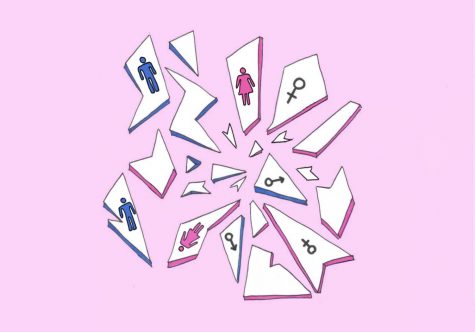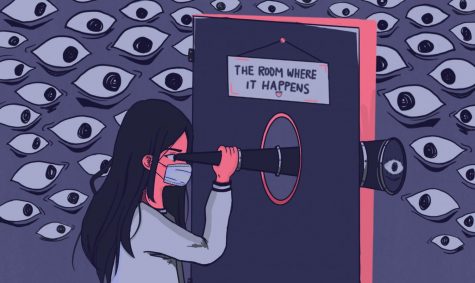Why Numbers Matter

When the coronavirus ramped up, schools across the country had no choice but to shut down. They did, however, face an important and contentious decision about how students would be assessed for spring term. Schools could either choose to switch to a pass/fail system or continue to assign a specific number or letter grades. Groton chose the latter, with a slight modification. In the first chapel talk of the term, headmaster Temba Maqubela addressed the community and explained that Groton’s choice had come from a desire to maintain as much normalcy as possible. Although sometimes strenuous for students, this choice has helped motivate and facilitate learning during these unusual times.
The situation around the world is extremely bizarre and urgent. We are in the midst of a global pandemic. The level of uncertainty is unparalleled and our minds are wracked with worries going far beyond schoolwork. In that sense, it is unreasonable to expect the same quality of work as before. To compensate for this though, Mr. Maqubela instituted a new system, explained in a letter to parents, which he called “pass-pass-incomplete” where “students who are unable to submit work will receive an incomplete rather than a failing grade”. At the same time, those who need to aim higher should have an opportunity to do so and see some evidence of mastery of concept and not merely passing.”
Additionally, many teachers have cut back on testing this term. “Online learning fundamentally changed how and when students study, so teachers adjusted accordingly, honing in on critical material and prioritizing assignments,” wrote Academic Dean Kathy Leggat. Therefore, these grades are not based on nearly the same amount of assessments as usual. And although rather lenient, this policy serves to account for the fact that all 380 Groton students have different home lives. When we are at school, this becomes less of a problem as Groton serves as an equalizer. Yet at home, any differences in resources are exacerbated. “Everyone has unique circumstances, some of which make it difficult for people to work to their full potential” stated Fifth former Alex Karr.
The struggles that students might encounter are endless. Some are more visible: students on the west coast must wake up before 6 a.m to begin classes, while students in Asia get out around midnight. However, there are also students with emotionally taxing and less public situations. Those who have too little space to be productive, or are concerned about a family member who has fallen ill with the virus could potentially struggle with their work. Yet ironically, numerical grades are a safeguard in this situation, providing teachers with checkpoints to evaluate the well-being of their students. “When a paper is not submitted or quality is below par, we are able to bring in advisors to get in touch with said student,” wrote Mr. Maqubela.
Therefore, number grades are not meant to limit students, rather they serve as helpful data for teachers while allowing students to continue to achieve at a high level. For many kids, the spring term is a time to boost grades and as Assistant Head of External Affairs Megan Harlan mentioned, axing these term grades would harm students who had difficult initial experiences at Groton. So while receiving number grades during online learning is certainly not ideal, the benefits outweigh the detriments. In the long run, this extra set of numbers on their transcripts will most students. Moreover, by eliminating number grades there may have been a drop in classroom productivity. “If we had gone pass-fail, there is a chance that people might have checked out. It is quite easy to lose focus when you are alone at home and the environment is not normal,” said Fifth former Christina Oelhafen. For many people, grades serve as a sort of incentive and reward for hard work. They are a tangible way of measuring both success and progress, and we have grown up in a world where these numbers matter.
So while no solution was perfect, ultimately, maintaining numerical grades proved to have more advantages than disadvantages. A familiar system allowed for some semblance of normalcy while serving to motivate students. The pass-pass-incomplete policy afforded students more flexibility based on their home lives. And although stress levels still ran rampant and the playing field may not have been completely level, this decision was obviously carefully debated and considered the best option due to its multifaceted nature. It allows students room to thrive while also providing safety nets for anyone who is struggling. Because in the end, the goal was to emerge from this pandemic having preserved sanity while continuing to learn as much as possible.











